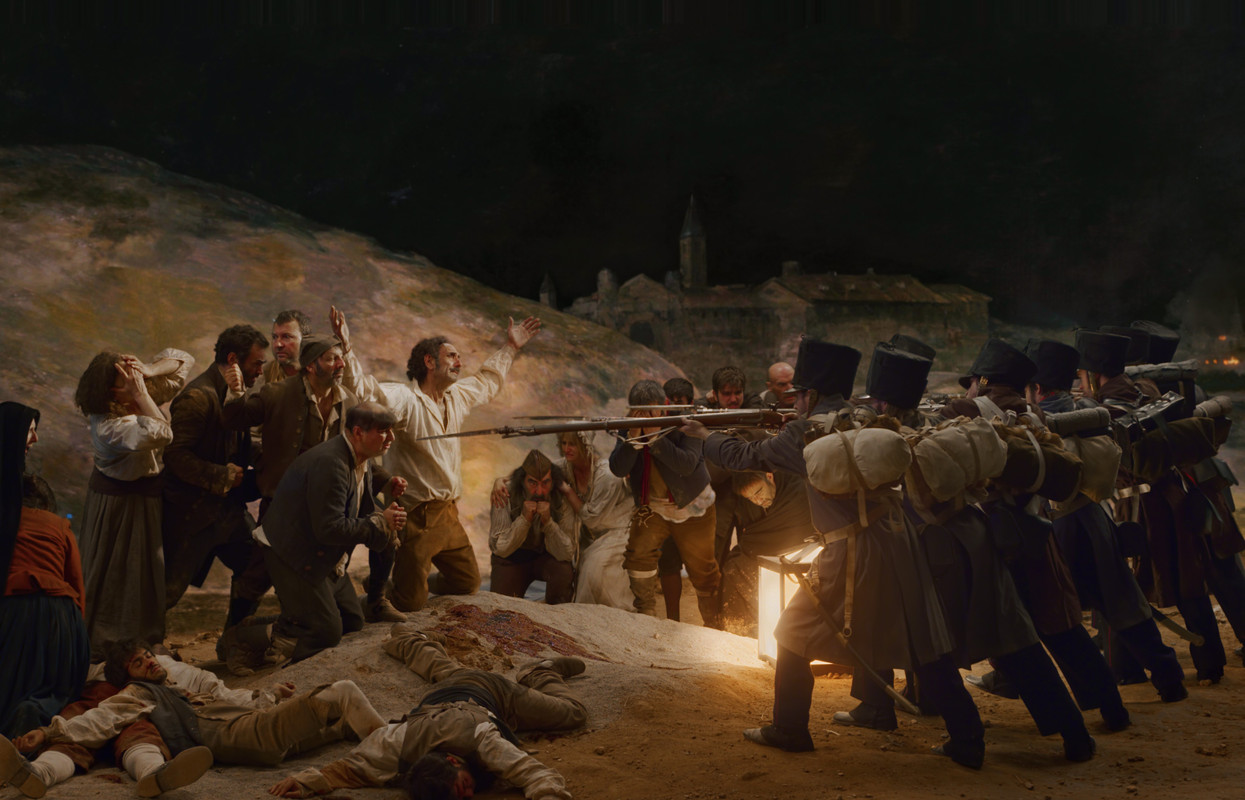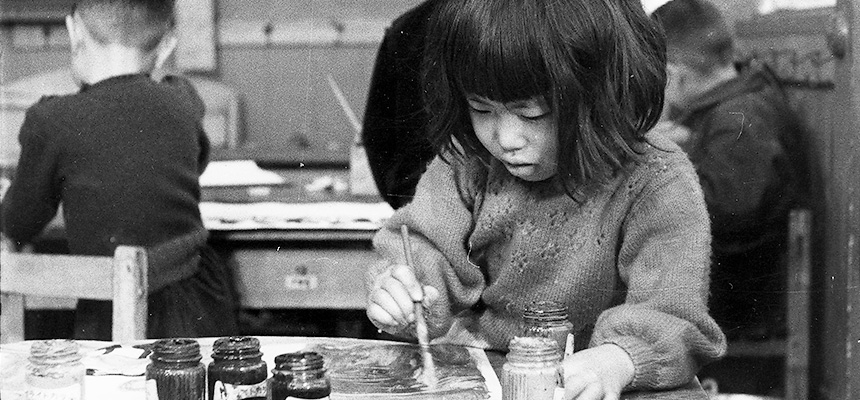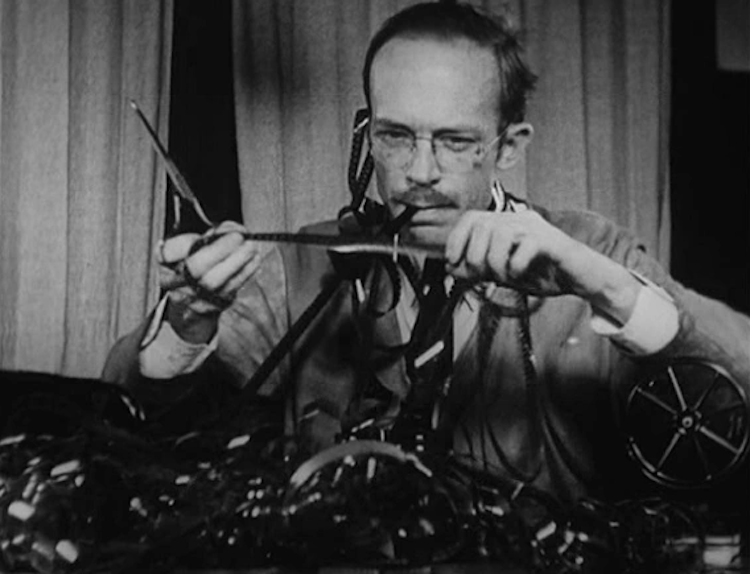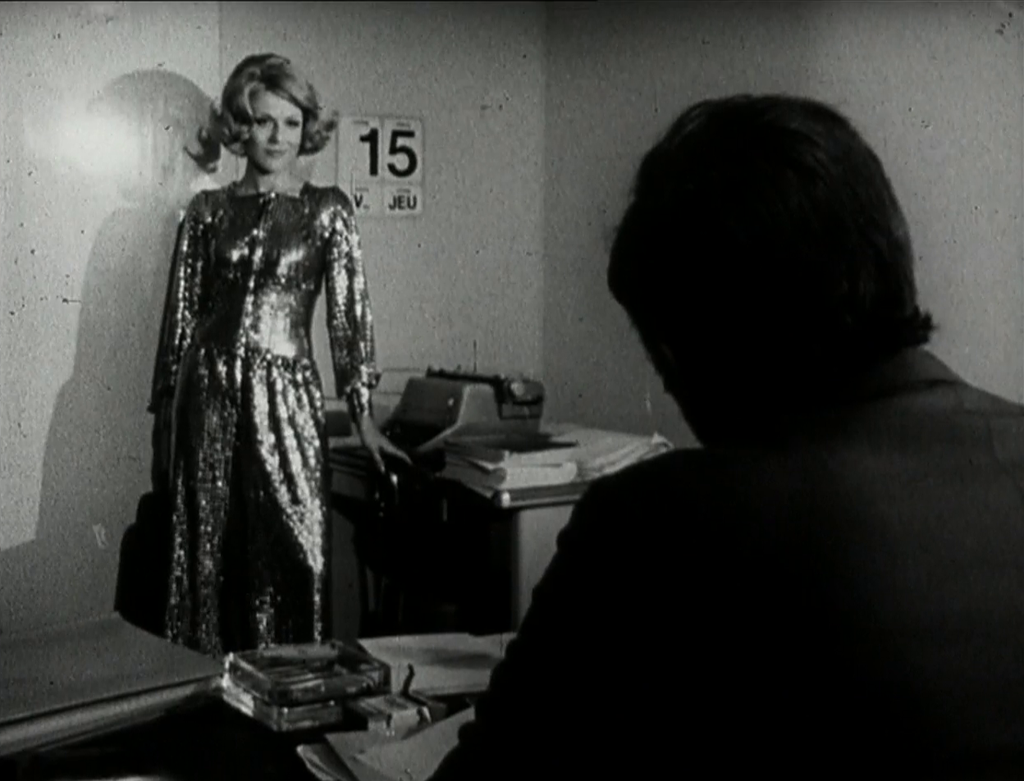“Everyone has the right to life, liberty, and security of person”فلسطين في العين [Filastin fi al-ayn / Palestine in the Eye] (Mustafa Abu Ali, 1977)
May
28
Amnesty International Day

Palestinian freedom fighters.
Amnesty International Day: someone who fights for human rights
– The Right to Live, the third of the Human Rights
Filmmaker #HaniJawharieh died while working for the #PLO Film Unit, an organisation fighting for the rights of the Palestinian people. His own death in 1976, which he caught on camera, is edited into this documentary.
ShortFilm
“Spotkał katar Katarzynę –
A – psik!
Katarzyna pod pierzynę –
A – psik!”Katar [Cold] (Hieronim Neumann, 1984)
May
6
Childhood Depression Awareness Day

One little girl sneeze even bursts the camera! A – psik (achoo)! DP: Zbigniew Kotecki.
A child with health struggles for Childhood Depression Awareness Day (USA)
– Jan Brzechwa, Katar (via)
A little girl has the sniffles, sees the doctor, and so happily spreads the bug all over town. A quirky animated short based on a poem by Jan Brzechwa.
Goya 3 de mayo [Goya, May 3rd] (Carlos Saura, 2021)
May
3
1808

Saura's reconstruction of Goya's anti-war painting El tres de mayo de 1808 en Madrid (1814). DP: Sergio De Uña.
L'eclisse del 17 aprile [An Eclipse of the Sun] (1912)
Apr
17
1912

Scientists in impeccable suits observing the 1912 solar eclipse. The colour used for tinting this scene, a turquoise, indicates moonlight/dusk. Image source: Cineteca di Bologna (via).
絵を描く子どもたち [E o kaku kodomotachi: jidōga o rikai suru tame ni / Children Who Draw] (Susumu Hani, 1956)
Mar
13
Youth Art Month

A little girl painting. DP: Shizuo Komura.
An artistic child for Youth Art Month (USA)
Small children work with clay, paint, and other materials. Under the camera's watchful eye, we see their work come to life.
Le Songe Des Chevaux Sauvages [Dream of the Wild Horses] (Denys Colomb de Daunant, 1960)
Mar
10
ithrah69's birthday

Camargue horses galloping through a haze of water and dreams. DPs: Denys Colomb de Daunant & André Costey.
A film ithrah69 may like for their birthday.
Filmmaker and photographer Colomb de Daunant's spiritual sequel to Crin blanc : le cheval sauvage [White Mane] (1953) and Glamador (1958) follows the same wild Camargue horses in their dreams.
The accompanying music is performed on a Cristal Baschet, a glass instrument key to several avant-garde films. I refer to John Coulthart's writeup about Le Songe, which links through to an article about the Cristal Baschet.
“I like the settings where the lights and desire cross path. The desire to communicate with the invisibles in the darkness, or in memory, or in the future. It's always related to cinema and we as insects that are drawn to lights.”สัตว์วิกาล [Sud Vikal / Vampire] (Apichatpong Weerasethakul, 2008)
Mar
2
Dr. Seuss' birthday

Applying blood to attract the Nok Phii. It's cold. DP: Chaisiri Jiwarangsan.
Imaginary animals or food for Theodor “Dr.” Seuss Geisel's birthday (1904).
– Apichatpong Weerasethakul, via
Villagers in the north of Thailand reported a rare sighting of a male and female Nok Phii, an elusive species of bird that feeds on animals' blood. It is unknown if the sighting was reliable, and if this vampire does, or ever did, exist.
Even: As You and I (Roger Barlow, Harry Hay + LeRoy Robbins, 1937)
Feb
27

A film editor struggling with a long strip of celluloid. DP: Hy Hirsh.
”'I know how you feel,' Reiko says quietly. 'And I will follow you wherever you go.'”憂國 [Yūkoku / Patriotism or the Rite of Love and Death] (Yukio Mishima, 1966)
Feb
26
1936

Reiko (Yoshiko Tsuruoka) walking through her lover's blood, her kimono drenched. DP: Kimio Watanabe.
Covers February 26–28, 1936.
– intertitles
